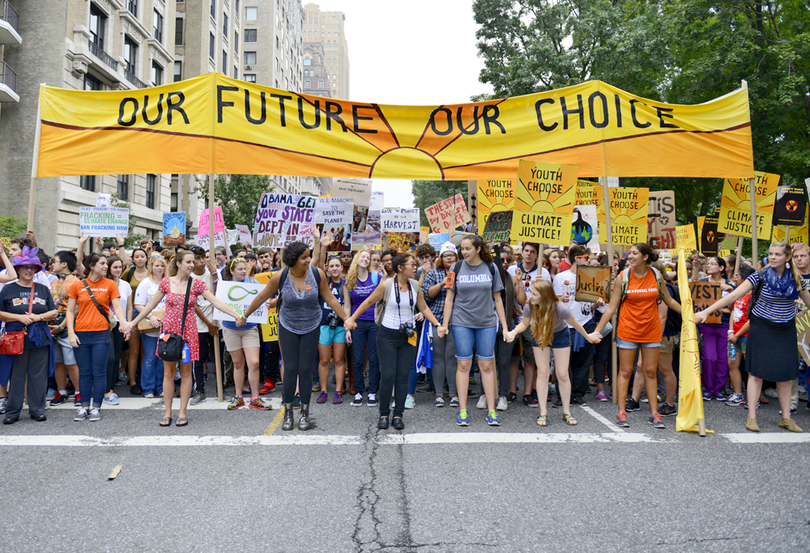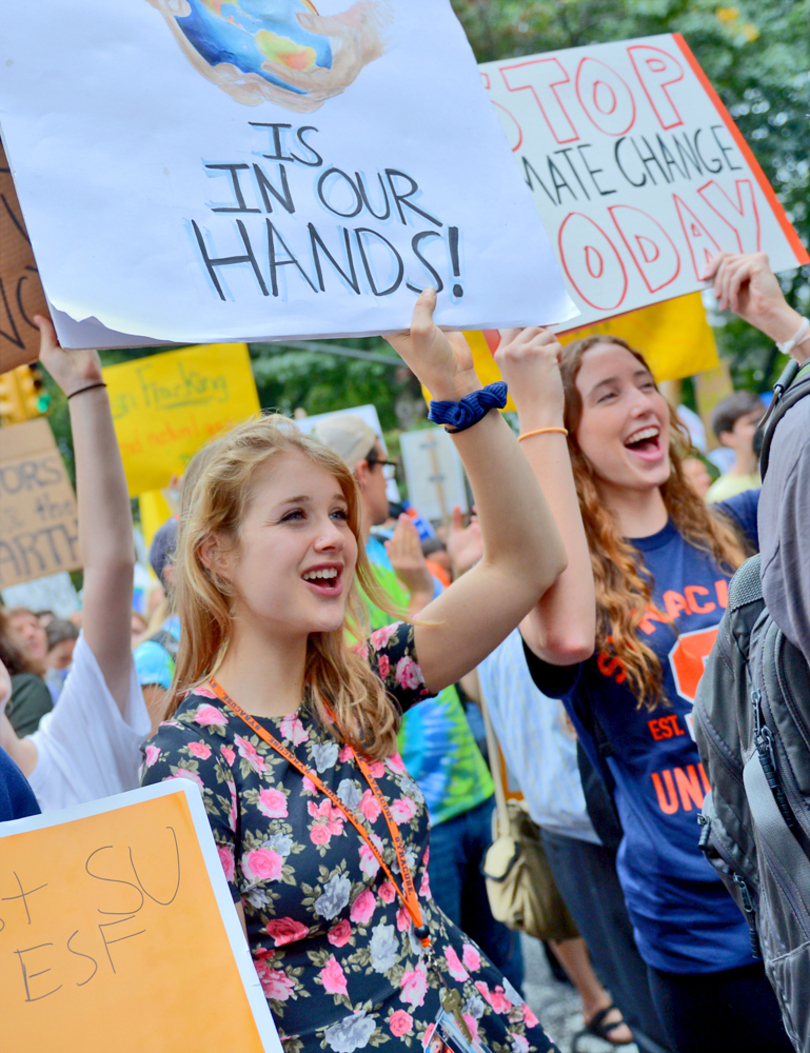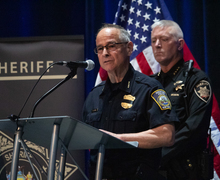SU and SUNY-ESF students participate in largest climate march in history
More than 100 Syracuse University and SUNY-ESF students were among the 400,000 people who took to the streets of New York City to chant, pound drums and wave signs during the People’s Climate March on Sunday.
Billed by organizers as the largest climate march in history, protesters were rallying to call for further action to mitigate climate change, such as more investment in renewable energy from government leaders. The march was held just as United Nations secretary Ban Ki-moon prepared to host the 2014 Climate Summit in New York City on Tuesday. The march also coincided with other similar protests around the world.
SU and State University of New York College of Environmental Science and Forestry students came for a variety of reasons, some to support general environmental causes and others for specific environmental threats to areas they care about.
The students marched on the humid, overcast day through the heart of the city, from Columbus Circle to Times Square, finishing at the Far West Side, 11th Avenue and 42nd Street West.
“It’s overwhelming, but in a good way,” said Colton Jones, a senior psychology major and the co-head of the environmental group Students of Sustainability. “I’m glad so many people care and came together for this common good.”
The students arrived in the city at about 10:30 a.m. and were able to find a position at the start line close to where former U.S. Vice President Al Gore was standing.
Paris Bethel, a senior advertising major, said she attended the march because after studying abroad in Australia and having the opportunity to go diving in the Great Barrier Reef, she found that the environment was something important to fight for.
Shoshanna Ochocki, a freshman environmental studies major at SUNY-ESF, said she was at the march to protest fracking in her Northwestern Pennsylvania community.
“The main industry in our town and surrounding towns is oil and I’m trying to prevent that,” Ochocki said.
Many students were impressed by the diversity at the march, including SU Students of Sustainability and Divest SU and ESF member Emma Edwards, who also helped organize student buses to the march. In addition to students at the event, Edwards said there were families marching together, people from low-income groups and civil rights groups.
“I love the variety of people who are here, it really shows the variety of issues that are wrapped up in this and how many people support this issue,” said Edwards, a senior geography major.
Some students left a day in advance to attend the march, however most left on the buses organized by Student Association and the Sierra Club that left from Syracuse at approximately 4:30 a.m. on Sunday.
The SA buses were free and the Sierra Club buses cost $20 per person. Many students also traveled to the march using personal and public transit.
Ben Kuebrich, a graduate English and textual studies student, stayed in contact with the Sierra Club Atlantic Chapter Iroquois Group of central New York to ensure that there were discounted bus tickets for students. While normal tickets were $40, there were also limited income tickets available for $20.
Around 50 students took a bus paid for by SA. Eight students did not turn out for the SA buses and two were selected from the waitlist to take their place, said Chiara Klein, an active member of Divest SU and ESF.
Christine Edgeworth, a junior geography major, approached members of SA with other members of her Students of Sustainability group and Divest SU and ESF a week before the march to request funding for the bus. The SA assembly approved the request last Tuesday, and tickets for the free bus to New York City sold out in just two hours.
Edgeworth added that she thought the event was a major step for activism at SU campus. Last March, only 12 SU and SUNY-ESF students attended the Keystone Pipeline March in Washington D.C.
“Right when we hit the city, we started doing chants and spirits lifted,” Edgeworth said.
Most students finished the march by 4:30 p.m. and were back on the road to Syracuse by 5:30 p.m.
Kuebrich, who was a bus captain in charge of ensuring organization of the buses before departure, said he hoped the march was much more than just a one-day experience for students.
“We are coming down here as a national movement, but our responsibilities is really to our communities when we come back,” Kuebrich said. “I don’t expect much from the summit meeting on Tuesday, but this can just be the first step to making a bigger impact through our communities.
Published on September 23, 2014 at 12:01 am
Contact Shannon: smhazlit@syr.edu






